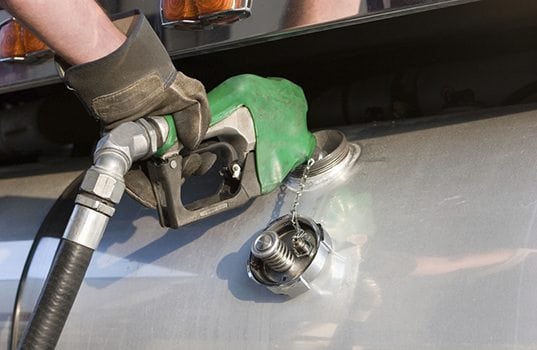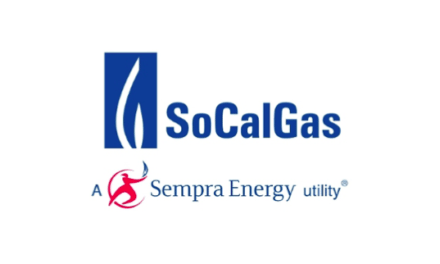By Paul Nazzaro, Advanced Fuel Solutions, Inc.
With the start of the new year, millions of well-intentioned people all over the country—perhaps you’re one of them—have set out to do good on their New Year’s resolutions. For many, this means spending hundreds of dollars on a gym membership, or a treadmill, perhaps some new running shoes, a fancy step-tracking device, a heart rate monitor—you get the idea.
In an attempt to look and feel better, and ultimately live longer, happier lives, these people have committed to increasing their body’s output through exercise. Some even reason that the more they spend on a membership or fitness gear, the more invested they’ll feel and motivated they’ll become. But to their own detriment, and usually to the demise of their resolutions, they fail to consider the most important factor of all: what they’re putting in to their bodies. As one health expert stated in The New York Times:
“Far too many people can manage to find an hour or more in their day to drive to the gym, exercise and then clean up afterward—but complain that there’s just no time to cook or prepare a healthful, home-cooked meal. If they would spend just half the time they do exercising trying to make a difference in the kitchen, they’d most likely see much better results.”
A valuable parallel can be made in the fleet management world. In order to improve the operational and economic efficiency of their fleets, many companies are investing in expensive route optimization and idle reduction technologies, driver tracking systems, fuel card integration and other emerging fuel management strategies. But few address the far more important factor: the quality of the fuel itself.
While the above mentioned technologies certainly have their merits, the fact remains that—due to increasingly stringent regulatory standards regarding sulfur content and renewable fuel levels, as well as mounting pressure on OEMs to increase fuel efficiency and decrease carbon emissions—the compatibility gap between today’s diesel equipment and fuel has never been wider.
Since the introduction of ultra-low-sulfur diesel (ULSD) in 2006, the transition to high-pressure common rail (HPCR) direct-fuel injection systems has plagued modern engines with a number of issues, including injector failures, filter plugging, loss of power and poor fuel economy. As ULSD is less thermally stable, it more readily breaks down into soot when introduced into today’s high-pressure fuel injection equipment, compromising EGR sensors and requiring more DPF regens—which means wasted time and fuel. In short, today’s advanced diesel engines and high-efficiency particulate filters will simply not function optimally on yesterday’s fuel.
Most assume that because the fuel they buy at the rack meets ASTM specifications, it’s of perfectly good quality. This couldn’t be further from the truth. ASTM specs are simply minimum standards of fuel quality to ensure that the product leaving the refinery can be safely used for its intended purpose. Without proper additive treatment and diligent housekeeping at every stop of the supply chain, fuel quality issues are not a matter of if, but when.
Fortunately, as rapidly as engine developments have been proceeding in recent years, so too has diesel additive technology. Today’s advanced additives can be custom packaged to meet the specific needs of a fleet, no matter what the time of year. Cold flow improvers, pour point depressants, deicing compounds and wax anti-settling agents prevent fuel gelling to keep systems running smoothly through the winter. Detergents keep tanks and injector systems clean and free of carbon deposits. Combustion catalysts and cetane enhancers improve ignition quality, increase fuel efficiency and decrease emissions. Corrosion inhibitors protect tank linings and system components. Water dispersants and biocides control microbial contamination, fuel degradation and other moisture-related issues.
That’s why OEMs—facing constant legislative pressure to develop higher efficiency, lower-emission engine systems—recommend additives to help achieve their intended result. But unless you have a firm understanding of the latest additive technology, appropriate treat rates and diesel operability points, it’s imperative to work with a fuel or additive supplier who does. The proper application of an advanced multifunctional additive package—be it for winter, summer, or year-round—will ultimately lower your fuel consumption, decrease maintenance and repair costs and maximize the uptime of your fleet.
Resolution season aside, there’s no better time to invest in the quality of your fuel. While fuel efficiency may not have been top-of-mind last year with diesel at $2.25 per gallon, with the price of oil now rebounding, the return on your investment will only grow, reducing your fuel and maintenance costs when you need to find savings most.
 Advanced Fuel Solutions, Inc (AFS), based in North Andover, Massachusetts, provides fuel quality consulting services and fuel additives designed to keep fleets on the road profitably. For more information on fuel quality, maintenance and treatment, contact Paul Nazzaro at 978-258-8360 x301 or [email protected].
Advanced Fuel Solutions, Inc (AFS), based in North Andover, Massachusetts, provides fuel quality consulting services and fuel additives designed to keep fleets on the road profitably. For more information on fuel quality, maintenance and treatment, contact Paul Nazzaro at 978-258-8360 x301 or [email protected].









